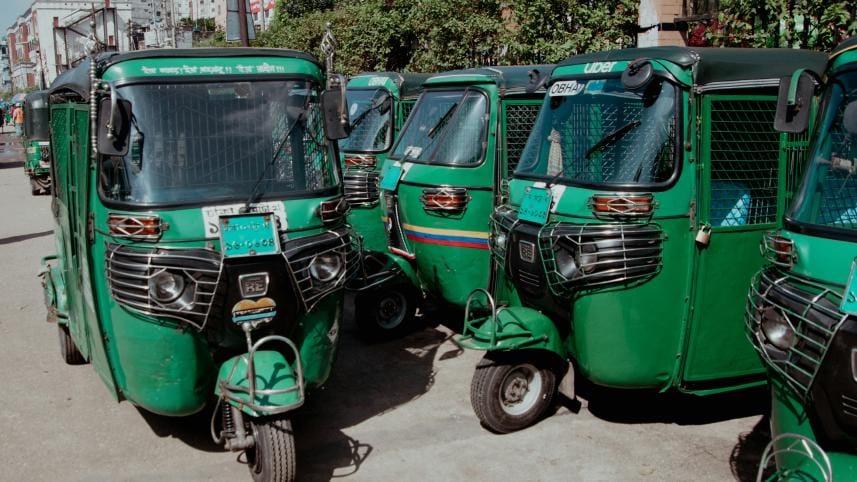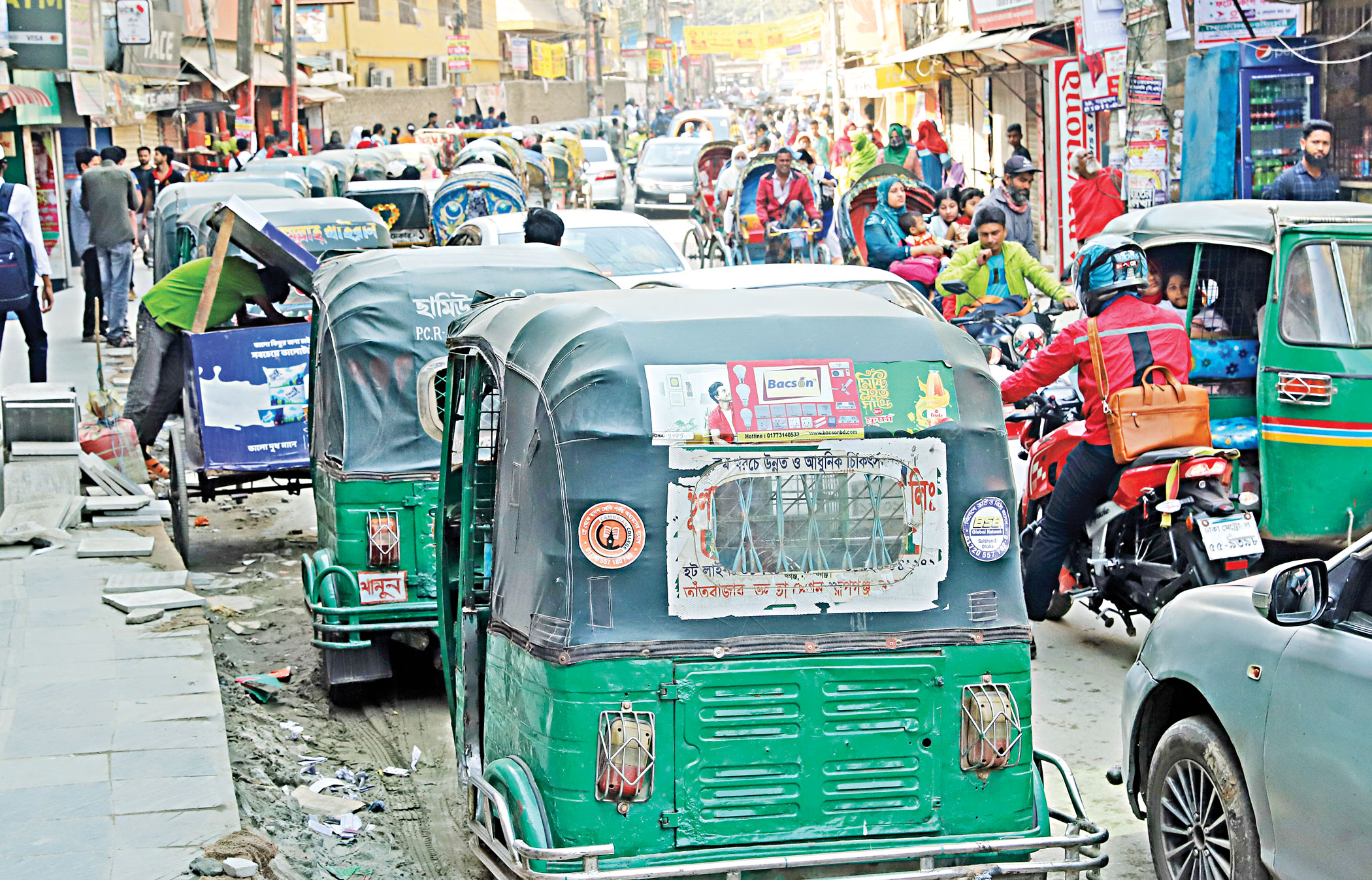Will new penalties fix Dhaka’s CNG auto-rickshaw crisis?

The debate over just fares for CNG-run auto-rickshaws in Dhaka has resurfaced as the government moves to reinforce penalties for overcharging passengers. Under the new directive, drivers who demand fares beyond the meter reading may face fines of up to Tk 50,000 or a six-month jail term.
For years, passengers have complained about drivers ignoring the meter system, instead opting for a contract-based fare negotiation. Auto-rickshaw drivers argue that the outdated meter rates, rising operational costs, and high daily deposits to vehicle owners make compliance unrealistic.
We spoke to some CNG auto-rickshaw drivers, and this is what they had to say —
"The fare rates mentioned in this law were set 10-11 years ago and have not been updated since. I don't understand how they plan to enforce it without adjusting to the rising cost of living. If they push this without revision, drivers will go on strike the very next day." — Md Delower Hossain.
"We all know how much living costs have increased over the years. At the same time, the daily deposit we pay to vehicle owners has more than doubled. If the government enforces the old fare structure, it will be nothing short of exploitation for us." —Md Abu Taleb.
"Unless the owners reduce the daily deposit rates, this law is impossible to follow. If deposits were around Tk 400-500, we could work with the meter system. But even then, the fare structure should be updated to reflect the current cost of living. We want a system that considers both passengers and drivers." —Sayed Akbar Ali.
"If this law is enforced without any changes, I won't even bother protesting, I'll just leave this profession altogether. Driving a CNG will no longer be a viable livelihood for me." —Md Bacchu Miah.
However, many commuters feel that the new measures are fair.
"When the meter system was first introduced, CNG drivers used to ask for Tk 30-40 more than the meter fare. Now, they don't follow the meter at all. They only turn it on as a formality and tell passengers to claim they will pay as the meter shows if stopped by the police. In reality, almost all of them operate on a contract-based fare system now. I want this law to be enforced." — Sadia Afrin, a student from the University of Dhaka.
"A ride from my house to Shyamoli costs Tk 400-450 in a CNG, which is Tk 150-200 more than the meter fare. That's a huge difference, especially for middle-class commuters. Enforcing the meter-based system fairly is crucial to prevent such overcharging." —Sadia Tasnim, A regular commuter from Basabo.
There are, however, few who sympathise with the CNG drivers.
"Like many other problems in this country, this issue has been met with a rushed, one-sided solution. A sustainable approach should have been taken that considers both passengers and drivers, as well as vehicle owners' deposit rates. While I support a regulated fare system, it needs to be realistic and balanced to be truly effective." —Ashraful Haque Asif, Gulshan.
"When the meter system was first introduced, drivers didn't follow it properly. Instead, they'd tell us to claim we were paying by the meter if stopped by the police. So, I have doubts about whether this new law will work. If they want to enforce the meter system, the per-kilometre fare should be adjusted based on gas prices and the current economic conditions." —Fahim Mokbul Ur Rahman, Hatirjheel.
A long-term solution must balance passenger affordability with the financial realities of drivers to create a system that works for everyone. Without a fair revision of meter rates and deposit structures, the stricter enforcement of penalties could push more CNG drivers into financial distress or even out of work.



 For all latest news, follow The Daily Star's Google News channel.
For all latest news, follow The Daily Star's Google News channel. 
Comments